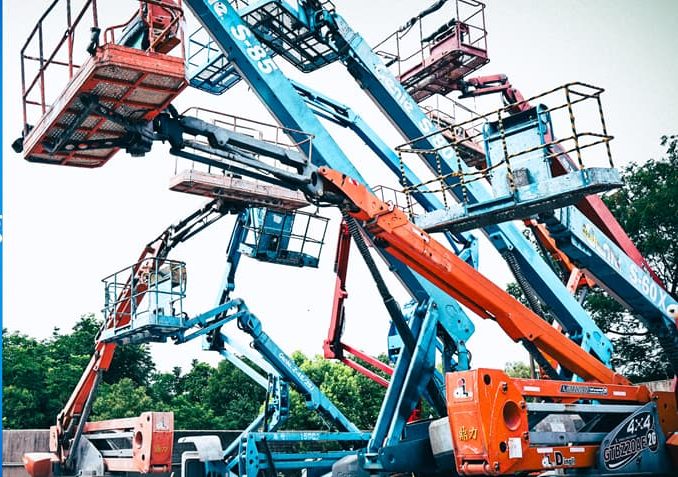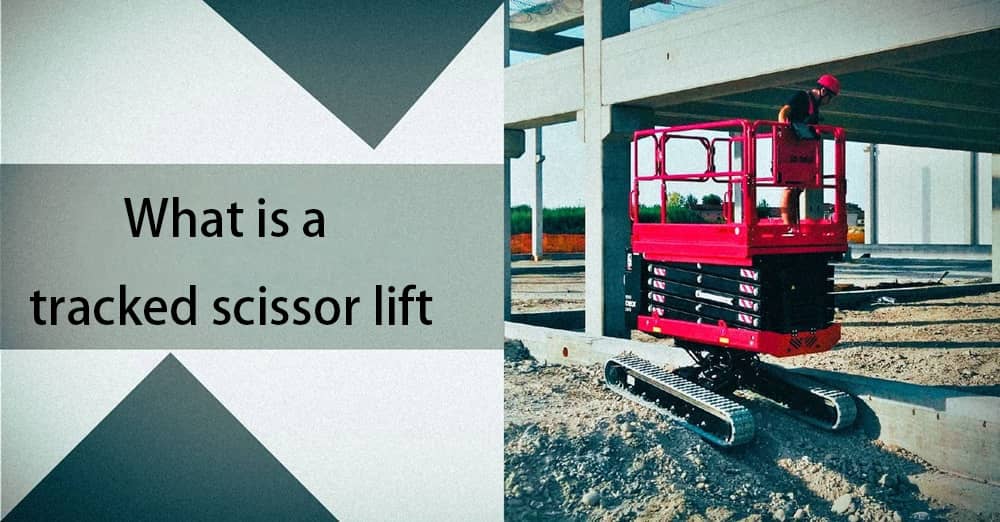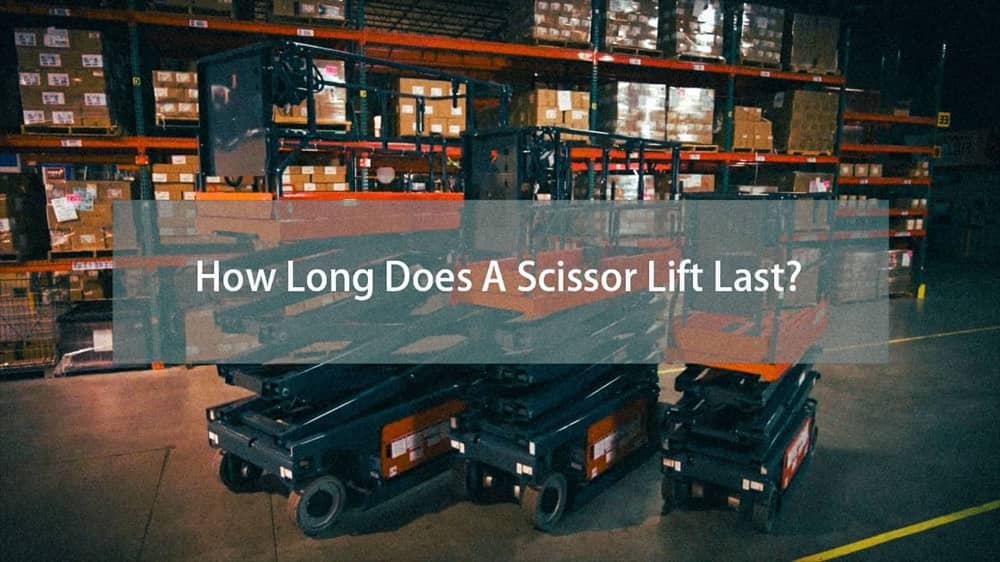As indicated by a Grand View Research report, in the last few years, the used construction equipment market has achieved notable growth whereby sales worldwide hit $29.2 billion in 2021 and are expected to storm up to $44.1 billion by 2028. This instruments a whopping 51% growth within seven years and underlines the favor used machinery is finding in the construction industry. Opting to buy used construction equipment can be very advantageous from a financial perspective. In many cases, used machinery is available for purchase at prices far below those of new models.
But the choice of investing in used construction equipment is a big one. The condition of the equipment, maintenance history, and remaining life should be evaluated by the buyer to ensure this is a good investment. As a professional used aerial lifts supplier Holdwell used construction equipment buying guide will be very strict about those elements that you should pay attention to when buying used construction equipment.
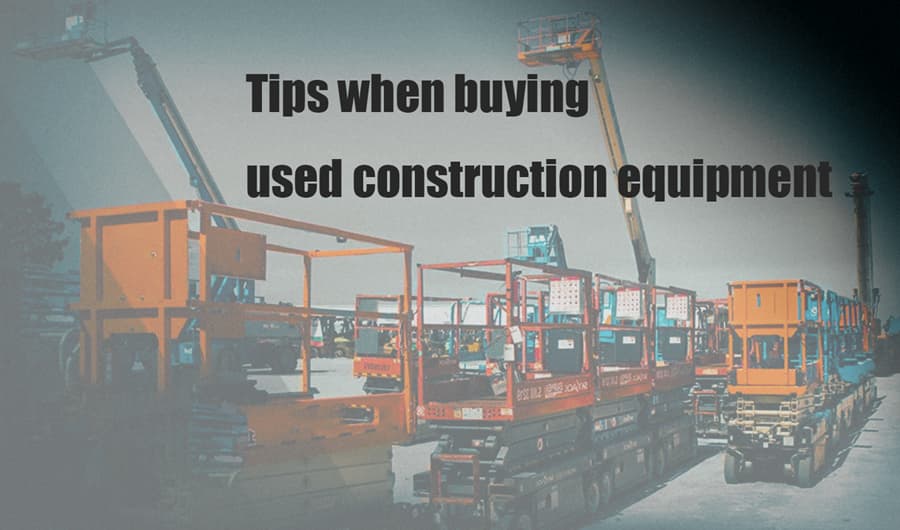
When looking for used construction equipment, the internet is particularly useful and can select different platforms. Each market has its own set of advantages and potential drawbacks of the deal.
Specialized Construction Equipment Sites
Specialized construction equipment sites can offer search on a global scale down to individual pieces of specialized construction equipment. In these platforms you can generally view detailed description of the machine being sold, as well as view pictures, specifications and maintenance records.
Pros: The selective scope, detailed list, and usually include equipment history.
Cons: Due to platform costs, the price may be higher. For companies with limited budgets, it is not a good choice.
General Auction Sites
General auction websites like eBay can offer search on a global scale down to individual pieces of specialized construction equipment. In these platforms one can generally view detailed description of the machine being sold, as well as view pictures, specifications and maintenance records.
Pros: May get the device one wants cheaply
Cons: Low levels of professionalism in work and scanty details on equipment
Online Listing
Second -hand construction equipment were also listed on sites such as Craigslist and Facebook Marketplace. These platforms are mostly local, which can make logistics and inspection easier.
Pros: Directly interact with the seller, the price may be lower.
Cons: Buyers have limited protection and need more due diligence investigations.
In addition to online resources, considering physical dealers and auction houses may also be a wise method.
Authorized Dealer
Authorized dealers typically entail a safer buying process. They may offer warranty and financing options hence adding wise peace of mind to your purchase. Holdwell is a professional dealer. Holdwell sells major brand used aerial lifts such as Genie, JLG, Haulotte, DINGLI, and more.
Pros:
- onsite inspection & check machine usage
- File after -sales warranty and financing options.
- Chimonally keep historical archives and status reports
Cons: The cost is commonly higher than private sellers.
Assess your needs and budget
Before the purchasing process, it is very significant to have a clear understanding of your needs and financial constraints. The specification of the project definition will help you select the right unit.
1. Specify the nature and size of the project
- Expects the requirements of the project to determine the type and size of the required equipment. For example, compared with the ditch of public undertaking, the foundation of the house requires different mechanics.
2. Equipment type and specifications
- Carding the necessary exact equipment types, such as a boom, a straight arm lift still requires a hinged prosperous lifting machine.
-Specify detailed requirements, such as horsepower, excavation depth and improvement capabilities.
3. Budget
- Set a real budget for your device. Do not only consider the purchase price but some additional costs such as inspection, transportation, potential maintenance.
- Everaging financing plans (if available) to decentralized costs and effectively manage your cash flow.
4. Consider extra costs
- It is good to ensure that the equipment is in good condition through professional inspections.
- Calculate the shipping and delivery of the equipment to your place.
- Any budget that may be repaired or maintained immediately.
5. Financing selection
- Suton the use of financing options for second -hand equipment. The flexible payment plan provided by many dealers can reduce the financial burden of the early stage.
Having heard all your views and having studied the whole scope of the budget, decide whether to make a very good and acutely aware resolution with your challenge wishes and steadiness between the situations.
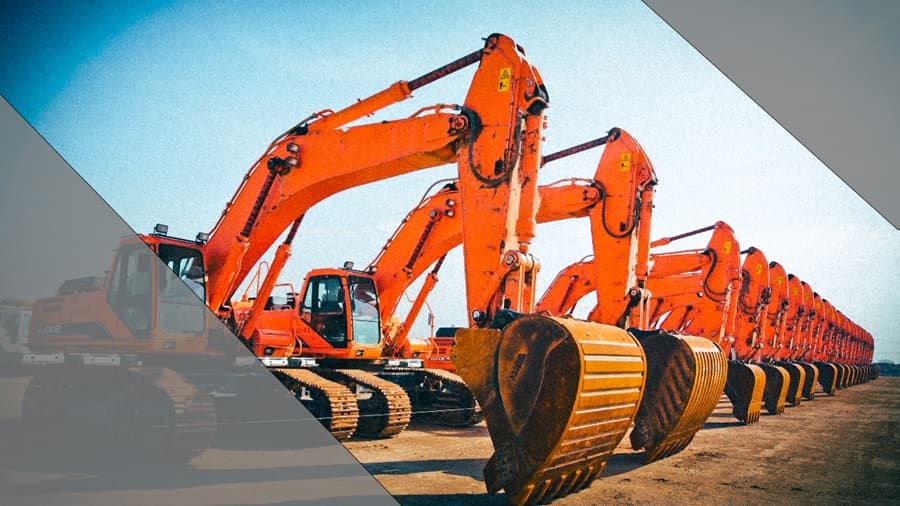
Research Equipment History and Usage
Maintenance Records
Maintenance is extremely vital for the equipment. Just like with a used car you can tell how well it has been taken care of by how clean the interior and exterior are. It gives warning signs throughout its operation life when something is going bad or needs to be attended to.
- A detailed maintenance log is like a health record for the equipment, showing how well you have cared for it.
- Consistent entries indicate continuous systematic maintenance; blank or sparse logs suggest that the equipment may have been neglected.
- Keep an eye out for regular oil changes, filter changes, and periodic inspections as recorded in the log.
Runtime
Recommended Maximum Runtime: There are different recommended maximum runtimes for each piece of used construction equipment. The recommended runtime is one indication of when the machine was likely to have been new, plus some added extra time. More than likely, it would develop a few small problems that are fixed during the service.
- For instance, a good working excavator may have a life of 8,000 to 10,000 hours while a forklift can put in up to 15,000 hours of effective operating time depending on use and care.
Vehicle mileage equivalent:
- A well-operating time of construction equipment is comparable to how many miles a car has.
- More operating time usually means more wear and tear and more potential issues, but if the equipment is well maintained and if the operating time is steady-at an under moderate level, then it means that this equipment is a very wise purchase.
Past Use
Types of work previously performed:
Knowing the types of projects the equipment was used for can provide insight into its condition.
Equipment used in harsh environments, such as mining operations, may be subjected to more wear and tear than those used in mild conditions, such as equipment used in residential construction.
Relevance to your intended use:
- Ensure that the previous tasks are related to your use. The project may benefit from equipment that has been used for similar purposes and is more dependable.
- Insist on inspecting the equipment before purchasing. If possible, hire a heavy equipment specialist or mechanic to assist with the inspection.
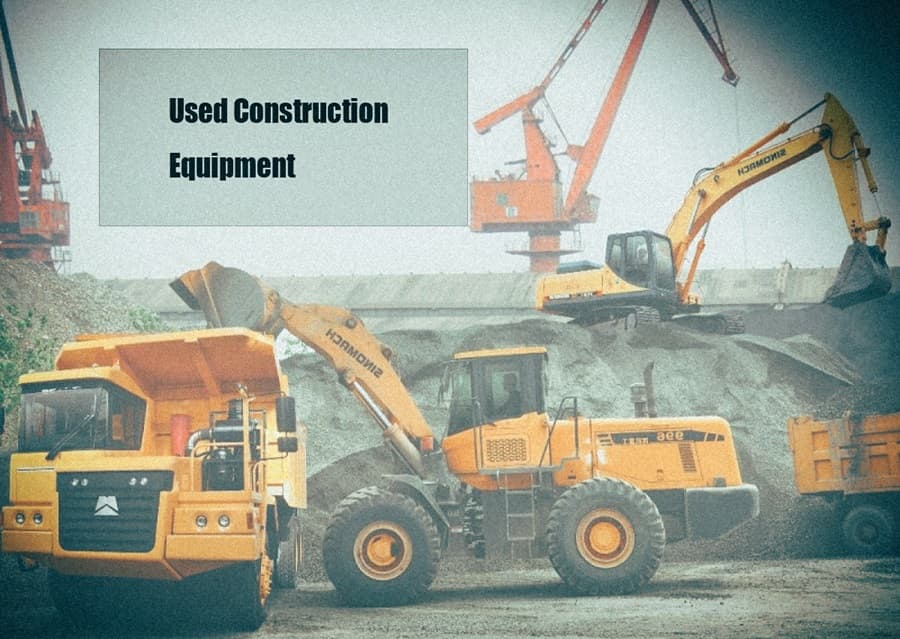
Why is a Thorough Inspection Necessary
Maintenance Records
Expert Assistance:
Make or break, and informed decisions; an expert’s eye can determine that you would otherwise remain ignorant of. They can identify possible issues that are not common knowledge.
Engine:
- Look for oil leaks, smoke, or abnormal noises.
- A visual check of fluid levels and filter condition will confirm to how well the engine has been maintained.
Hydraulic System:
- Assess cylinder, pump, control, and motor for any sign of oil leak and operational.
- Efficient working means hydraulic system in good order with quick response
- Transmission and Drivetrain
- Check shifting for proper operation. Listen for unusual sounds while in motion.
Brakes and Tires/Tracks:
- Check for wear on the brakes and tires/tracks.
- Check that they respond well and have enough life that will enable you to accomplish the project at hand
Electrical System:
- Test light, battery condition, gauges
- Ensure proper functioning of all electrical components to avoid downtime
Overall Condition:
- Watch for rust, dents, and other signs of lax upkeep
- General appearance and condition of the outside and inside can tell you how well the equipment has been maintained.
Maintenance Records
- Make a demand for maintenance records.
- Justify or prove wrong the seller’s verbal mention about condition/facts of the machine with maintenance records.
- Detailed maintenance records allow estimating future performance and service.
After buying a piece of used construction equipment some steps have to be borne in mind in order that equipment works correctly and safely.
First Line Maintenance
Checking up:
– Ensure that the workforce is appropriately trained in carrying out the initial and pre-operational checks.
– Ensure that the workforce is appropriately trained on:
– Performing a comprehensive inspection of the equipment to ensure no repairs are needed before placing it into service.
– Solving any issues identified during the preliminary assessment.
– Develop a Maintenance Procedure:
The development of a maintenance plan and regularity activity, which may require long-term reliability and performance.
– Keeping detailed logs of all maintenance activities for future reference.
As mentioned in this guide, buying used construction equipment is a smart choice for any company looking to expand its business at a low cost. The right used construction equipment will perform just as reliably as new machines, making your investment very worthwhile.
In summary, buying used construction equipment requires careful consideration of the factors listed in the Holdwell guide, followed by a focused due diligence, which can be a very rewarding and cost-saving approach. Choosing a reputable used equipment supplier like Holdwell will ensure that you get used construction equipment that meets your needs and is ready for your project to succeed.

